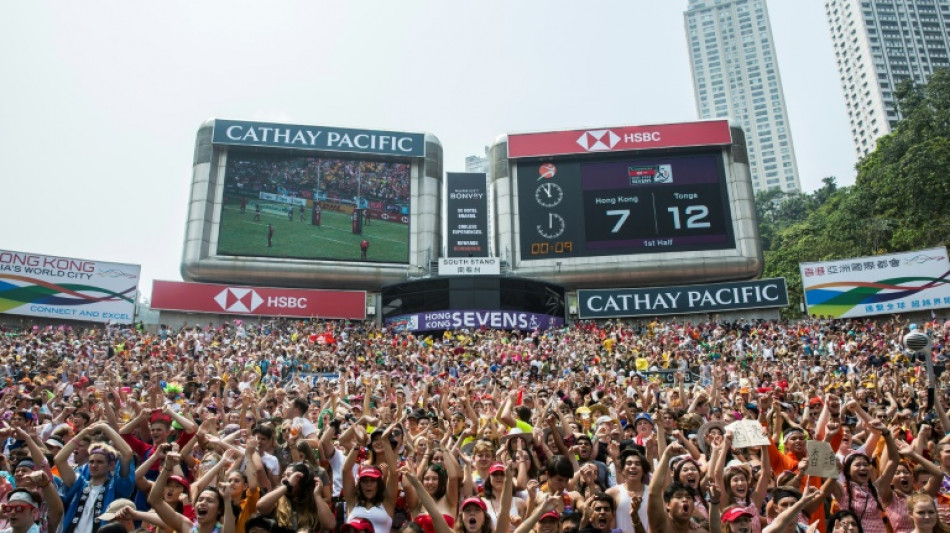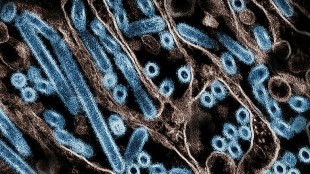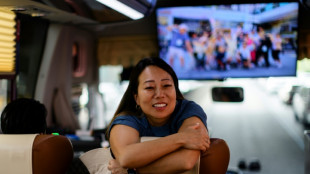

Hong Kong Sevens back after three years - will it be party time?
The Hong Kong Sevens will kick off Friday for the first time since the coronavirus pandemic began -- but virus controls may dampen the high-octane rugby tournament's famous hard-partying atmosphere.
The three-day sporting jamboree, long established as a highlight of the World Rugby Sevens circuit, is being billed as a key component of Hong Kong's reopening drive.
Sixteen men's teams will compete over the weekend, but the women's tournament that usually runs in parallel has been cancelled.
Among the favourites for the competition, which kicks off the 2023 season and qualification for the 2024 Olympics in Paris, are Fiji.
The Olympic champions are on lucky territory in Hong Kong, having won the last five editions and a record 19 titles in the city, more than any other team. They will be defending the Cup they won more than three-and-a-half years ago.
The current World Rugby Sevens Series champions Australia will also be in the mix, part of a 'pool of death' for hosts Hong Kong, along with powerhouses New Zealand, who have won 11 titles in the city since the inaugural Sevens in 1976, and Samoa.
Off the pitch, officials are eager to reboot the sports and tourism sectors and declare a return to normality after years of pandemic travel curbs.
The tournament reliably drew a daily stadium crowd of 40,000 before the pandemic, right up until its last edition in April 2019.
This year, the stadium is capped at 85 percent capacity because of pandemic rules and organisers are aiming for 30,000-plus a day.
A major test for the tournament will be bringing back overseas spectators -- who used to account for nearly half of ticket sales -- weeks after Hong Kong scrapped hotel quarantine for international arrivals.
More than 26,000 out of 34,000 tickets were sold as of Tuesday but the "vast majority" went to the local market, according to Hong Kong Rugby Union CEO Robbie McRobbie.
- Raucous crowds -
Organisers spent months negotiating with the government to find a middle ground between its strict public health rules and allowing the rowdy festivities that have become synonymous with the Sevens.
Spectators were initially to be banned from eating in the stands but officials relented last month.
"It has certainly helped enhance the event experience for those attending and has contributed to a noticeable spike in ticket sales," McRobbie told AFP.
Hong Kong maintains layers of pandemic restrictions long since abandoned by almost everywhere else in the world.
Overseas arrivals are still banned from going to bars and restaurants for the first three days, and must test regularly.
Face masks remain compulsory and spectators must present negative virus test results and use Hong Kong's contact-tracing app to enter the stadium.
The South Stand has long been famous for fans in fancy dress and a raucous party atmosphere fuelled by all-day drinking, singing and dancing.
A "typical" Sevens experience may not return until next April, when tourist numbers ramp up and virus curbs are further relaxed, McRobbie said.
Economists estimate that this year's tournament will bring in less than HK$300 million ($38.2 million), down from HK$400 million in past years, the South China Morning Post reported.
Last month, Hong Kong held a snooker tournament which broke records for a live audience size, though it featured fewer overseas players than usual.
(C.Fontaine--LPdF)




